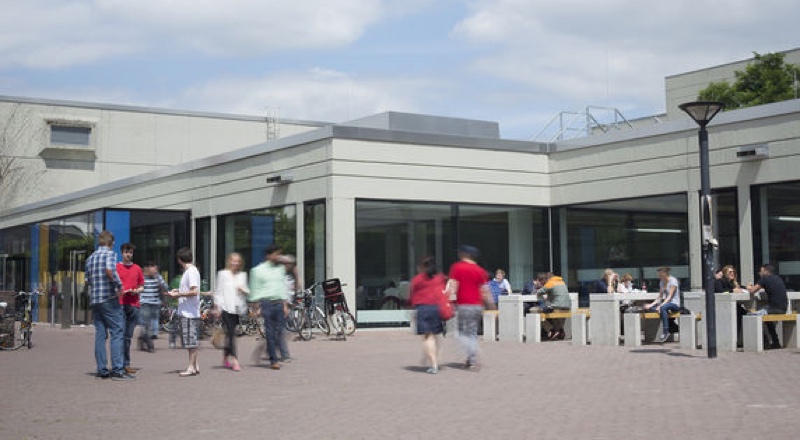Media and Culture Studies
Bachelor of Arts (Integrative study programme)

Short description
The program begins with a coordinated introduction to the fields of study of media, culture and aesthetics. In the second semester, in-depth courses on individual subject areas such as film studies, aesthetic theory and theater studies follow. These are accompanied by professionally oriented practical courses, for example in the areas of creative writing and film/video production. At the same time, students begin to deal with questions of comparative and intercultural media and cultural studies.
In the third semester, the module "Media, Everyday Life, Subjectivity" is followed by courses on gender studies, media materialities and everyday media life, among others. In the lecture series "Media and Cultural Professions," guest lectures from industry, art, and culture show students ways into the profession. In the fourth and fifth semesters, the focus is on questions of media ethics and research methods, as well as the analysis of specific media forms and associations. In addition, students attend further practical courses, especially in the areas of Internet journalism, new media, radio and public relations.
Finally, a constitutive component of the course is the joint conception, planning and implementation of a project. For the realization of own projects in the field of radio and video, the faculty has access to a professionally equipped media laboratory. Close cooperation with media, theater and art institutions in the region, including the Kunstsammlung Nordrhein-Westfalen, the tanzhaus nrw, the NRW-Forum, the Museum Kunstpalast, the Forum Freies Theater (FFT) and the Schauspielhaus Düsseldorf, enable practice-oriented research.
During the lecture-free period, students are required to complete a total of twelve weeks of internship. Attendance at advanced language courses enables students to demonstrate their knowledge of two modern foreign languages at the end of their studies. During the course of studies, students have the opportunity to acquire part of their credits at one of our partner universities abroad or at another location. We maintain partnerships with universities in Ankara, Davis (USA), Reading (GB), Istanbul, Lisbon, Louvain-la-Neuve, Nantes, Neuch tel, Seville, Thessaloniki, Utrecht, Linz and Vienna.
Entry/Admission requirements
Higher education entrance qualification (Allgemeine Hochschulreife), interest in the reciprocal condition, structuring and impact of media and culture(s) as well as the capacity for abstraction.
Programme content
The program commences with a coordinated introduction to the study areas media, culture and aesthetics. The second semester offers courses on individual disciplines of cultural media studies such as film studies, aesthetic theory and theater studies as well as job-oriented practical courses, such as creative writing and film / video production. Additionally, in the second and third semester courses on comparative and intercultural media culture studies are being taught.
In the third semester, the module "Media, Everyday Life, Society" contians classes on gender studies, media materiality and everyday media. In the lecture series "Media and Cultural Professions", possible occupations are presented in the form of guest lectures from industry, art and culture. In the fourth and fifth semester, media ethics and research methods dominate the curriculum, as well as the analysis of specific media forms and networks. In addition, students participate in further practical courses, especially in the areas of Internet journalism, new media, radio and public relations.
A significant part of the degree program is the joint conception, planning and execution of a project work. To enable projects in the field of radio and video, the faculty has a professionally equipped media laboratory. Practice-oriented research is promoted by close cooperations with media, theater and art institutions in the region, such as the Kunstsammlung Nordrhein-Westfalen, the tanzhaus nrw, the NRW Forum, the museum kunst palast, the Forum Freies Theater (FFT) and the Schauspielhaus Düsseldorf.
During the lecture-free period, the completion of a welve-week internship is required. Kowledge of at least two modern foreign languages (German excluded) has to be proven at the end of the program. For this, students can attend advanced language courses taught by the university's language center. During the program, students have the option of spending time at one of our partner universities abroad or at another location. Well-maintained partnerships exist for universities in Ankara, Davis (USA), Reading (GB), Istanbul, Lisbon, Louvain-la-Neuve, Nantes, Neuchâtel, Seville, Thessaloniki, Utrecht, Linz and Vienna.
Programme structure
Programme objectives/Career prospects
Possible occupational fields include: journalism, editorial work, dramaturgy in theater, film, screenplay, film and film marketing, television, music, cultural and event management, publishing, advertising and PR industry, radio, museums, galleries, dance and concert halls, festivals, cultural public relations and media consulting.
Winter semester
6 semesters
German
Local admission restrictions - DoSV
by 15/07/2024
lt. Zulassungsbescheid
01/07/2024 - 15/08/2024
Dr. Björn Sonnenberg-Schrank
Room: 23.21.01.096
Instagram Institute
Instagram Departmental Student Committees
Student Services Center (SSC)
Building: 21.02 / SSC
Phone +49 211 81‐12345
For questions regarding the course of studies and for examination issues:
Student and Examination Administration
Contact Examination Administration

